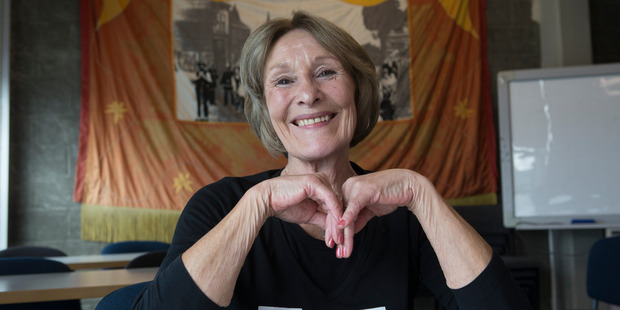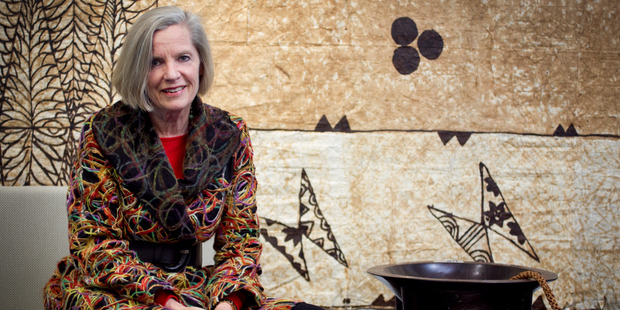Care workers in women-dominated industries will get pay rises worth up to a $5000 a year after a historic settlement with the Government.
In all, the package will cost $2.048 billion and could require a lift in ACC levies or higher fees for aged care residents. It will cover 55,000 care workers, mostly women, in the aged residential care, home support and disability service sectors.
It is the first legal settlement in New Zealand which recognises that some jobs pay less because they are done mainly by women.
The settlement comes after a pay equity claim brought by E Tu (previously the Service and Food Workers Union) on behalf of care worker Kristine Bartlett against her employer TerraNova in 2012.
Prime Minister Bill English and Health Minister Jonathan Coleman announced the deal at Parliament today, which will bring some 20,000 workers on the minimum wage of $15.75 an hour to a wage of $19 an hour. That represented a 21% increase worth $106 per week before tax, and $5511 a year.
"It will deliver a signigicant pay boost for some of the country's most dedicated and hard-working but lowest paid workers," Mr English said.
Dr Coleman described it as the largest pay increase in New Zealand's history. It would benefit some of New Zealand's lowest-paid workers, he said. The workforce was mostly female and part-time, with average wages of between $16 and $18 an hour.
As a result of the agreement, carers who were on the minimum wage would receive a pay rise of between 15% and 49%, depending on their qualifications from July 1 this year.
Dr Coleman said a new pay matrix would be established, standardising the pay offered by around 1000 providers under 4000 separate contracts. Existing workers would be transitioned to positions on the new pay scale, reflecting their skills and experience, he said.
The $2 billion settlement over five years would be funded through increases in the Health and ACC budgets. That could mean an increase in ACC levies over the next decade, Dr Coleman said. "However, that is not definite. There may also be an increase in costs for people in aged residential care facilities, whose assets keep them above the subsidy threshold."
Legislation would be introduced to Parliament soon to enact the changes.
Asked whether the settlement meant care workers had been mistreated in the past, Mr English said: "It has been part of the way the health sector works. You can make a number of arguments about how and why they've been paid ... but what we've come to here is a fair settlement. If we thought they were being paid fairly we wouldn't have gone into the negotiation."
The settlement is expected to have wider ramifications, and Mr English said he understood other sectors were considering pay equity claims. These would be dealt with by pay equity principles which are being developed alongside unions and businesses, rather than by direct negotiation.
Mr English warned that the carers' case was "unique' and that the "hurdle would be pretty high" for any other groups making claims for equal pay.

In 2012, the Service and Food Workers' Union lodged a claim on rest-home caregiver Kristine Bartlett's behalf with the Employment Relations Authority. It claimed that she and other caregivers, male and female, were paid at a low rate because it was work predominantly done by women.
The union took the case on behalf of Ms Bartlett and 14 other union members of the 110 employed by Terranova rest-home owner. Their wages were effectively set by the government subsidy paid by the Ministry of Health for rest-home services.
The case was elevated to the Employment Court, Court of Appeal and Supreme Court. Once the Court of Appeal confirmed pay equity cases could be heard under the Equal Pay Act of 1972, the Government stepped into the process because it was loath to leave a case with such far-reaching repercussions solely in the court's hands.
Ms Bartlett is 68 and has worked in a Lower Hutt rest home for 24 years on a rate that is barely above the minimum wage. She said today was a "huge victory," - not just for her, but for thousands of support workers.
"And not just today - but for years to come. What an exciting moment. I'm thrilled, This will be the biggest pay rise we will ever get."
She said she had worked alongside others who struggled to get by on the minimum-wage level pay caregivers had been on, including some who arrived at work without lunch because they could not afford it.
"So this will be a life changer. It makes me so happy, And that's why I took this case, so they could live in dignity. We will now be able to enjoy work knowing we are getting the appropriate pay."
John Ryall of E Tu said it was a momentous occasion which would benefit 55,000 care and support workers.
"It will transform their lives. This will make a huge difference. It offers a clear pathway top better wages and better lives through a new system for training."
Mr Ryall said Ms Bartlett's courage had led to the settlement. "Your legacy will live on for a long time."
He said establishing the principle of pay equity had been important to the union. He said it was a human right and represented a massive step toward gender equality. "This is a good thing, not just for low-paid undervalued women, but for us all."
He also said he wanted to pay tribute to the Government for agreeing to negotiate "rather than waiting for years".

Today's historic pay equity agreement can partly be traced to a damning inquiry five years ago which involved a senior public servant going undercover in a rest home.
The author of that report, former Equal Opportunities Commissioner Judy McGregor, said today she was celebrating a deal that would greatly benefit 55,000 low-paid workers.
Ms McGregor famously posed as a care worker in a retirement home for a week in January 2012 as part of her year-long Caring Counts inquiry. Her report concluded that aged care was a form of "modern-day slavery". It also generated momentum for a legal challenge against the Government, which effectively sets the pay rates through its subsidies to aged care providers.
Speaking to the New Zealand Herald today, Ms McGregor was reluctant to take any credit for the settlement. "I am proud to have been part of the catalyst, but I think the equal pay movement has been around for a long time."
Ms McGregor, now the head of public policy at AUT, said going undercover helped to get public attention for workers who had until then been invisible. She said the settlement would send a strong message to the public that their work was hugely valuable.
"One of things that was quite remarkable when we did our human rights report was the degree to which the public felt embarrassed that carers looking after their elderly were paid so little for the job they knew they couldn't do. When I worked in the sector, I was physically unable to lift people and hoist them and toilet them. This will now show the public that the job has value."
Opposition parties have criticised the National-led Government for resisting change and fighting Kristine Bartlett all the way to the Supreme Court.
But Ms McGregor gave some credit to the Government, saying it had now settled on two of the major recommendations in her report; pay equity for carers and compensation for carers' travel between clients.
"I think it is fantastic news that women have finally got equal pay, or at least something towards equal pay," she said. "Whether I agree that that's the true value of an hour of caring work is another matter."
- NZ Herald and NZME












